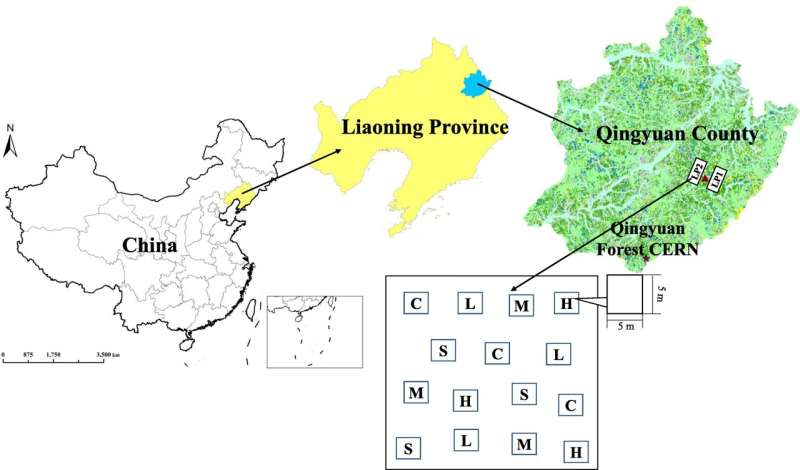Effects of harvest intensity on sustainable utilization of non-timber forest products

Non-timber forest products (NTFPs) are very important for local forest dwellers to increase their income. The growing demand for NTFPs resources with high economic value may lead to disorderly utilization and over-exploitation
Researchers from the Institute of Applied Ecology (IAE) of the Chinese Academy of Sciences (CAS) recently revealed how harvest intensity affects the sustainable utilization of NTFPs by experimentally designing different harvest intensity levels to verify which harvest intensity is optimum for sustainable harvesting of NTFPs in a montane region of Northeast China.
They found that harvest activities could increase the yield of both two important NTFPs species (Acanthopanax senticosus and Aralia elata). Light harvest intensity (harvest 25% leaves) was favorable for the sustainable harvesting of Acanthopanax senticosus, and high harvest intensity (harvest all terminal buds) was beneficial to sustainable harvesting of Aralia elata.
These results highlight the role of harvest intensity in the sustainable utilization of NTFPs, and provide practical guidance and theoretical basis for forest managers to harvest and manage NTFPs resources.
Relevant results have been published in Forest Ecosystems, titled "Effects of harvest intensity on the marketable organ yield, growth and reproduction of non-timber forest products (NTFPs): implication for conservation and sustainable utilization of NTFPs."Forest harvesting in Europe threatens climate goals: study
More information: Ting Zhang et al, Effects of harvest intensity on the marketable organ yield, growth and reproduction of non-timber forest products (NTFPs): implication for conservation and sustainable utilization of NTFPs, Forest Ecosystems (2021). DOI: 10.1186/s40663-021-00332-w
Provided by Chinese Academy of Sciences
No comments:
Post a Comment